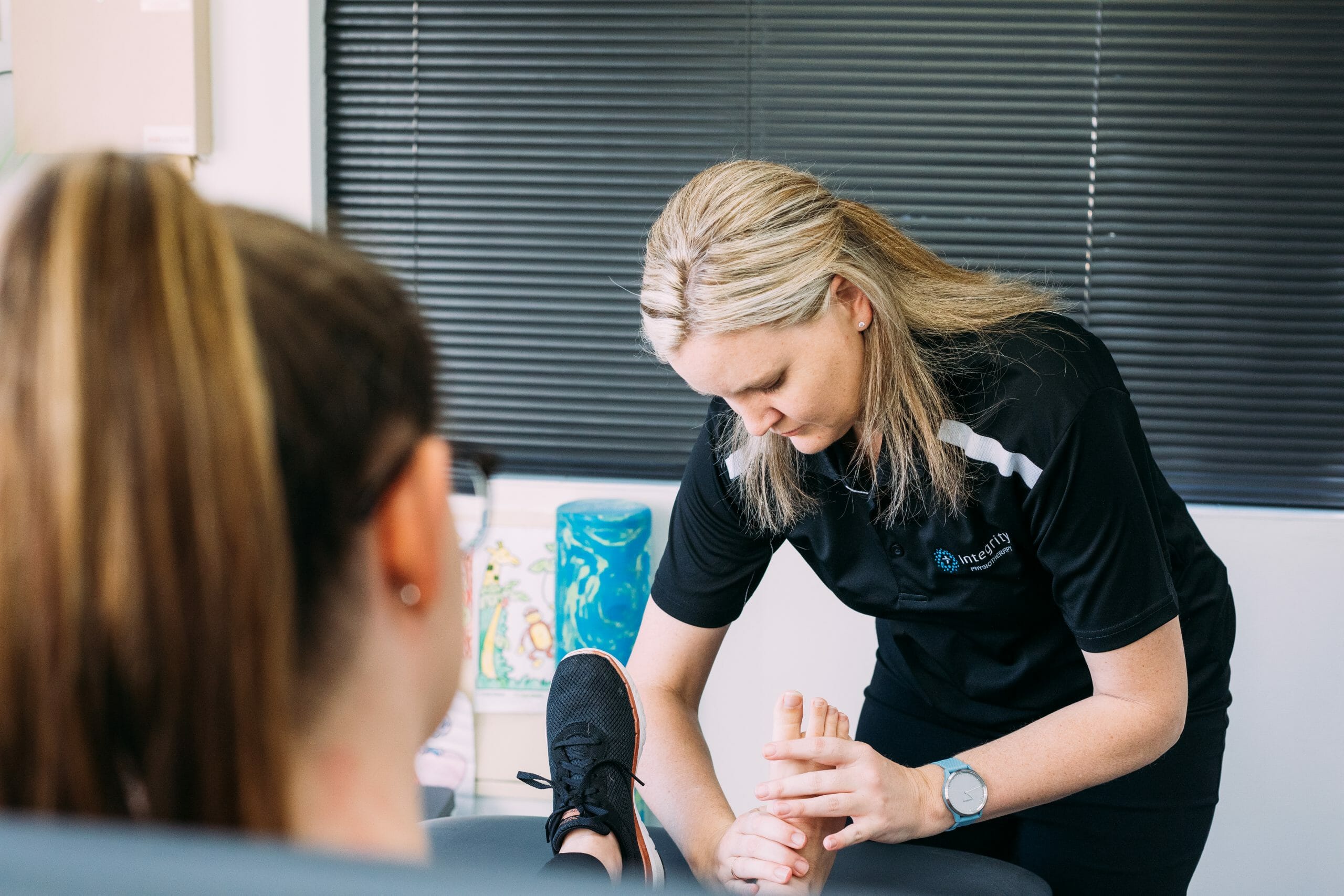
Take control of your plantar fasciitis pain
Is heel pain slowing you down? If plantar fasciitis is making every step a struggle, you’re not alone. We understand how frustrating and debilitating it can be, and can have a big impact on your daily activities and favourite pastimes.
Our experienced, compassionate, and skilled physios for plantar fasciitis are dedicated to providing personalised care tailored to your unique needs. Let us help you find relief and get back to living life to the fullest, one step at a time.

How Our Plantar Fasciitis Physios Can Help
At Integrity Physio, we provide comprehensive, personalised care for plantar fasciitis. Our experienced physiotherapists use the latest techniques and tailored treatment plans to target the root cause of your pain.
Whether it’s through hands-on manual therapy, specific stretching and strengthening exercises, or expert advice on footwear and lifestyle modifications, we’re committed to helping you find lasting relief. Our holistic approach ensures that you also gain the tools and knowledge you need to prevent future flare-ups.
Trust Integrity Physio to help you get back on your feet. Book your appointment today!
Symptoms of plantar fasciitis
Got heel pain? You might be dealing with plantar fasciitis if you’re experiencing:
- Sharp heel pain: Especially first thing in the morning or after sitting for a while.
- Stiffness: Your foot feels tight and achy, particularly after long periods of rest.
- Tenderness: The bottom of your heel feels sore when you press on it.
- Swelling: Mild swelling around your heel area.
- Pain after activity: Discomfort intensifies after exercise, not during it.
- Radiating pain: This can spread along the bottom of your foot towards your toes.
If these symptoms sound familiar, it might be time to give your feet the care they deserve!

Plantar fasciitis Causes and Prevention
Plantar fasciitis can sneak up on anyone, but certain factors can make you more susceptible, like:
- Weakness and poor movement: Weak foot, ankle, and knee strength can up your chances.
- Medical conditions: Conditions like arthritis and diabetes can increase your risk. Arthritis can cause tissue inflammation, and diabetes affects circulation and tissue quality.
- Weight issues: Being overweight or obese adds stress to your plantar fascia.
- Occupational hazards: Jobs that keep you on your feet all day, especially on hard surfaces, can lead to plantar fasciitis. Fatigue in the soft tissues puts extra strain on your plantar fascia. Pair this with bad shoes and you’ve got a recipe for pain!

When to see a physio for plantar fasciitis
Dealing with heel pain that just won’t quit? It might be time to see a physiotherapist. Here are some signs that it’s time to book that appointment.
- Persistent pain: If you’ve been experiencing heel pain for more than a week and it’s not improving, a physio can help.
- Morning stiffness: If the first steps you take in the morning cause sharp pain that eases after a few minutes, it’s a common sign of plantar fasciitis that needs professional attention!
- Impact on daily activities: When heel pain starts affecting your ability to walk, run, or enjoy your usual activities, it’s time to seek help.
- Over-the-counter treatments aren’t working: Tried rest, ice, and pain relievers with no success? A physio can provide you with a targeted treatment plan.
- Changes in foot mechanics: Noticing changes in the way you walk or stand due to pain? This can lead to other issues like knee, hip, or back pain.
- Recurring pain: If your heel pain keeps coming back, even after it seemed to get better for a bit, it might be time to call in the professionals.
- Swelling or bruising: Unusual swelling or bruising around your heel area is a sign that you need a professional evaluation!





